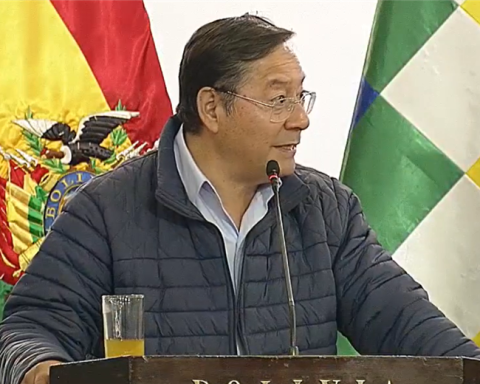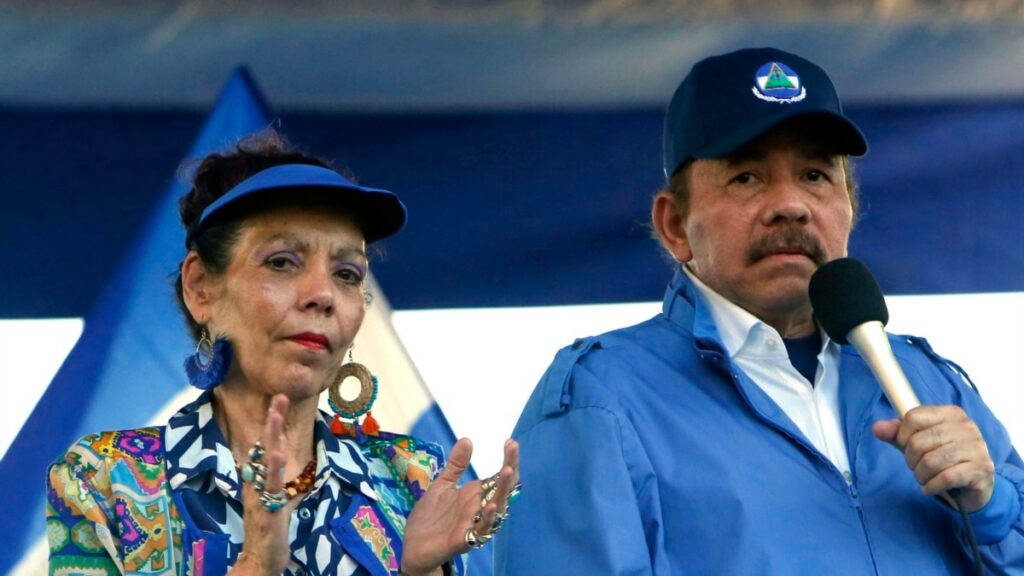April 23, 2024, 18:00 PM
April 23, 2024, 18:00 PM
On April 12, 1977, María Luisa Landívar de Justiniano broke the traditional restaurant concept in Santa Cruz, by incorporating a food little known to Santa Cruz residents: broaster chicken. The business soon became a new sensation and she baptized it “Chuy” – María Luisa’s nickname -, located in her house on Monseñor Salvatierra Street, in the San Roque neighborhood.
By the mid-80s, the restaurant had already become a fast food chain, with the participation of his six children, who decided to create the Chuy Corporation, through a ‘family pact’. Today, the company is run by the third generation of the Justiniano family and has 26 branches spread across Santa Cruz, La Paz, Tarija and Trinidad. Furthermore, it generates more than 250 sources of employment.
A few months ago, with the advice of Cainco, Chuy formalized his ‘Family Protocol’, which lays the foundations for the entire management of the corporation, through the family council, as well as succession plans, highlighted Eduardo Antelo, manager of the corporation.
A recent study of the Private University of Santa Cruz de la Sierra (UPSA), showed that only 20% of 100 family businesses surveyed claim to have formal succession plans or protocols. The research, titled “Family succession in Santa Cruz companies: factors of success and failure” He specified that the majority lack formal plans that outline the future. In fact, more than a third (35%) say they do not have any type of plan and 7% of respondents are unaware of its existence.
The research teachers, Gaby Lourdes Negrete and Roberto Catalino Pérez, stated that it is necessary to reinforce awareness of the importance of plan successions in advance among the business families of Santa Cruz.
“Not a few Santa Cruz family businesses They have managed to maintain their economic activity over several generations. This is an evident example of the ability to adapt to economic changes and remain competitive in a sustained manner. One of the main strengths of the family businesses in Santa Cruz, lies in its strong local roots and its commitment to the region. Many have become fundamental pillars of the local economy,” the researchers highlighted.
According to the study, family businesses are main actors in the Bolivian economy, being their contribution to the Gross Domestic Product (GDP) of 29%. In the particular case of Santa Cruz, the sectors that have supported this development are: agribusiness, commerce and services; all eminently familiar.
“For him Santa Cruz development model and progress of the region, it is essential that the family business survives. Lasting means achieving it in terms of market competitiveness, but also in terms of successful family succession,” said Negrete.
For his part, Pérez stressed that succession is the litmus test of the company. “Answering the question: who is selected as successor? The new leader must keep the entrepreneurial spirit alive and consolidate competitiveness. This problem is especially relevant during the passage from the first to the second generationhe indicated.
Farmacorp It is another success story of a family business in Santa Cruz. Its beginnings date back to April 17, 1937, when the biochemist Osvaldo Gutiérrez creates Farmacia Gutiérrez, one block from Plaza 24 de Septiembre. Then, the business passed into the hands of her four daughters, who in 1964 gave shape to Santa Maria Pharmacies, that ventures into the concept of chain.
In the first decade of the 90s, Osvaldo Gutiérrez’s granddaughters and grandsons joined the family business and decided to merge both pharmacies into the brand. Corporate Pharmacies SA (Farmacorp), in the year 2000. And in 2022 Nexocorp is born, the umbrella brand for business in the Gutiérrez business group, that integrates the chain Farmacorp, Farmacias Dr. Osvaldo, Amarket supermarkets and franchises such as Pizza Hut and real estate investments Blessed.
“One of the aspects that has been important in recent decades is the permanent support of the Family Council. Our shareholders have always prioritized the family and have recognized, with humility, the leadership assumed and the work of those who are exercising executive functions in the companies and their business units, respecting all the decisions made in the board of directors and the learning processes of every moment,” he highlighted María del Rosario Paz, president of Nexocorp.
According to the executive, the family has governance and the instances from which family, shareholding and management interests are seen. “The succession is planned, initially I have taken the leadership role, but each family has a representativeness in the instances that we have created,” Paz explained, mentioning that the company, 87 years old, It is in its third generation and is a success story not only because of its permanence over time, but because it was the result of a merger of family businesses.
The House of Camba It is also an exponent of a planned family succession company. It was founded on December 6, 1986 by Juan Carlos Medina Anzoategui, as a restaurant with typical quality food, clean and in a cozy place in the center of the city.
The business was supported by his wife, Rose Paradawho has given way to his four children, who in turn are already preparing the third generation to take the reins of the brand that includes a country-style restaurant in the Urubo and a food industry.
“The philosophy with which we have always worked is that individual effort is for the common good of all; We work under the same vision and objectives. It is worth emphasizing that we have always worked with the pillars of honesty, good treatment of both our workers and clients and with humility ahead, which is something that has always been established to move forward,” he highlighted. Fernando Medina, vice president of the Casa del Camba Corporation.
The heir of the gastronomic company maintained that the management succession has been in the works for many years. “The work of my brother Juan Carlos, from the beginning of the restaurant, allowed him to be the one to take the leadership of the corporation, due to his experience and business vision. Likewise, the rest of the board does not stop training to, at some point, support or, failing that, take the helm of the company,” said Medina, while also mentioning that his mother still works actively and is the one who makes the final decision in the board of directors.
The renowned corporate lawyer, Juan Carlos Urenda, He stated that in developing countries like Bolivia, the vast majority of businesses are family-based, which come from an important heritage built by parents or grandparents. However, very few of these assets are structured according to the modern techniques that exist to generate growth and avoid family problems, which are the most difficult to resolve due to the emotional impulses that surround disputes between family members.
“In Bolivian regulations, The most used forms are limited liability commercial companies and anonymous ones, the latter being the most recommended due to their quality of being managed by a board of directors, in which it is recommended that family members participate together with non-family members. “that provide knowledge, experience and impartiality,” explained Urenda, who highlighted that the modality ‘Family protocol’ It must be designed for the administration of important assets, with the participation of specialists.
For his part, the corporate lawyer Luis Moreno, He pointed out that beyond a mere document, family protocols must have a firm commitment to compliance, both morally and ethically. “The main thing is to have a clear succession plan, well structured, where lawyers and people who can help communicate all this participate,” he stressed.
In that sense, he warned that it should be taken be very careful with the figure of heirs, since when the ‘paterfamilias’ dies, difficulties may arise, especially when a member of the family considers that The distribution of the inheritance was unfair. “You have to be very careful even in wills,” added Moreno.

















